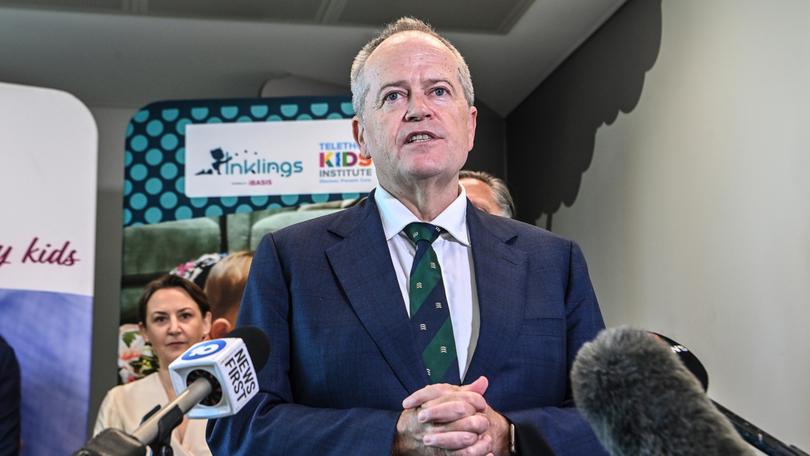NDIS: Gambling, holidays, vapes and ‘cuddle therapy’ included in new banned list as costs spiral
The final list of items and support programs NDIS participants can and cannot purchase using their taxpayer-funded budgets has been released.

The use of NDIS funding for gambling, holidays, vapes and “cuddle therapy” will be officially banned within days as the Federal Government continues its clean-up of the disability scheme.
NDIS Minister Bill Shorten has released the final list of which items and supports the scheme’s 660,000 participants can and cannot purchase using their taxpayer-funded budgets.
The list becomes law on October 3, although participants will escape punishment for “simple mistakes” during a 12-month grace period.
Sign up to The Nightly's newsletters.
Get the first look at the digital newspaper, curated daily stories and breaking headlines delivered to your inbox.
By continuing you agree to our Terms and Privacy Policy.Cases of taxpayer funds being used on drugs, sex workers, holidays and unproven treatments have dogged the NDIS in recent years, undermining public confidence in the fast-growing scheme.
The list of banned items includes food, rent and bills, gambling, holidays, theme-park tickets, jewellery and makeup.
Participants also won’t be able to purchase a range of treatments that aren’t considered “evidence-based” such as crystal therapy, cuddle therapy, yoga and tarot card reading.
The list also prohibits supports that should be covered under the education and health systems, such as home-schooling and prescription medicine.
The banned list is part of a wider overhaul to contain the scheme’s spiralling costs, which are projected to reach $46.4 billion in 2024-25.
The agency in charge of the NDIS is currently relying on administrative guidelines to determine which items can and can’t be funded, creating confusion and concern about inconsistent decision-making.
Mr Shorten said while creating the list would help cut scheme costs, its main purpose was to ensure the NDIS was returned to its “true purpose” of helping people with severe and permanent disabilities.
“I think every Australian supports the concept (of the NDIS) but what we have seen is the rise of opportunistic, unethical providers … and they’re selling snake oil,” he said.
“They’re selling stuff which, frankly, doesn’t work and shouldn’t be paid for”.
Essential supports such as assistive equipment, proven therapies and help with daily activities will still be funded under the scheme.
During a 12-month transition period, participants with existing funding for banned supports will continue to be able to access them until their budget expires.
Mr Shorten said the agency would also allow some leeway if participants made an “honest mistake” in claiming items valued at less than $1500.
“The agency will sit down and talk to that person and give them a couple of chances to understand what’s in and what’s not,” he said.
